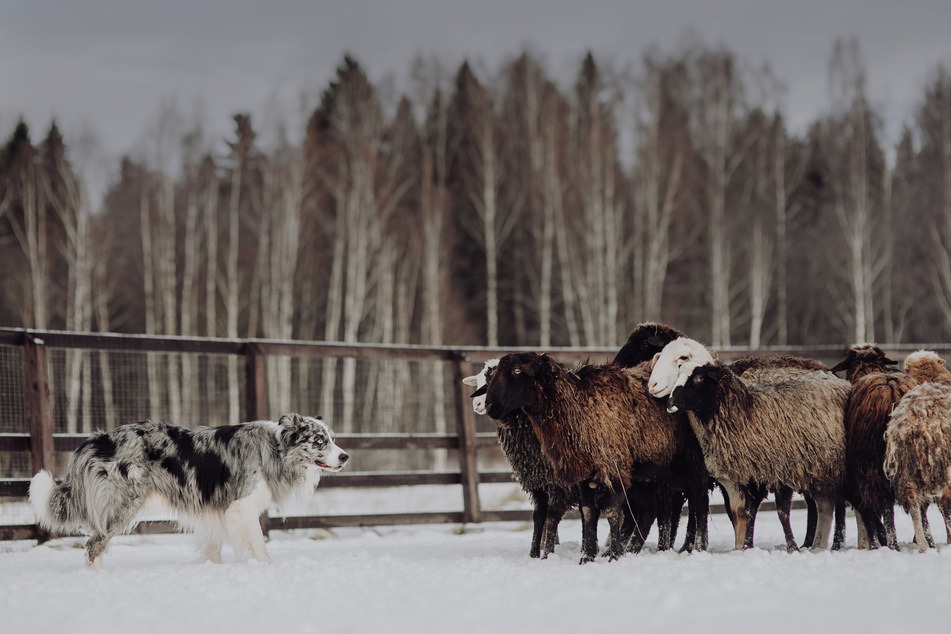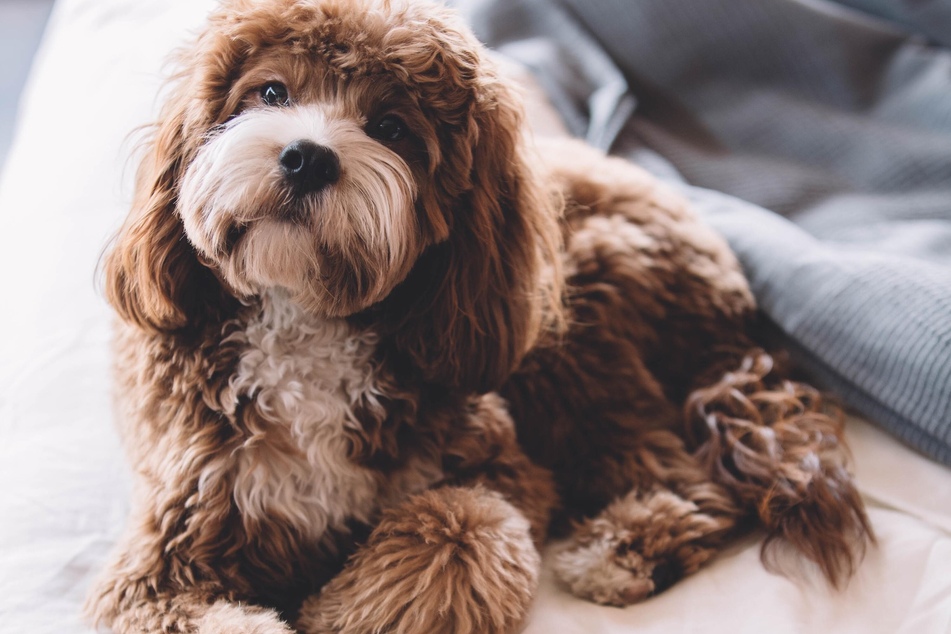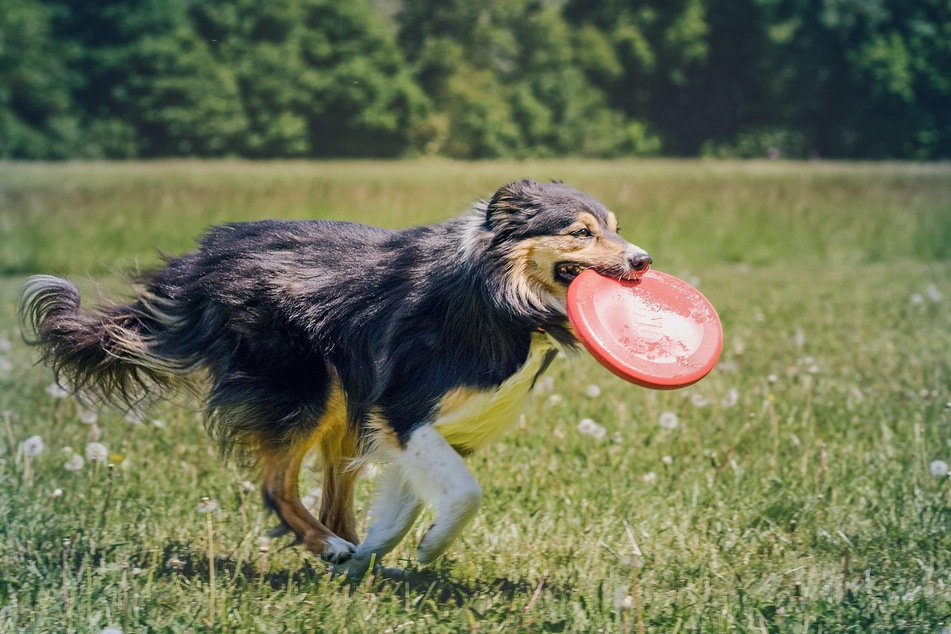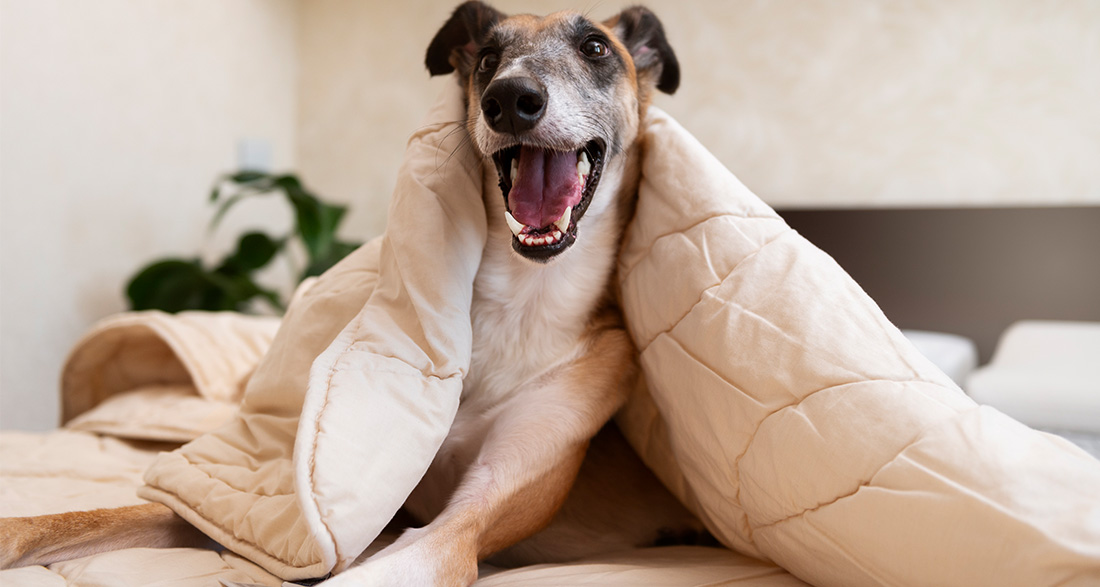An overexcited dog, what does that actually mean? You should be aware of the following causes to calm your dog with the right approach!
Constant pulling on the leash, incessant panting, loud barking, and uncontrolled jumping. Does your dog get wound up quickly?
The cause of hyperactive behavior in a dog isn’t always rooted in the dog’s personality. Therefore, it’s essential that you know possible causes and find out what’s triggering your furry friend’s behavior.
Dogs that become overexcited are often very sensitive to stimuli and react particularly sensitively to their environment. They sometimes find it challenging to concentrate on their human and remain undistracted.
Find out how you can determine the cause of your dog’s hyperactive behavior and what you can do to permanently calm your coexistence in the following.
Quick Facts:
- Causes of hyperactivity can include: genetics, inadequate stimulation, stress, training, illness, or improper nutrition.
- Solutions to calm the dog: routines, boundaries, rest breaks, the right toys, and stimulation.
5 Causes of an Overexcited Dog

1.Genetics
Some dog breeds were bred for specific tasks that require constant readiness and vigilance. Herding dogs or guard dogs, for example, often exhibit hyperactive behavior more frequently than other breeds.
2. Inadequate Stimulation
Especially breeds that are more active and sensitive to stimuli need sufficient stimulation. In general, dogs should be treated appropriately, both physically and mentally.
You can find information on dog breeds that are particularly active and need a lot of stimulation in the guide on sporty dog breeds.
3. Stress
Especially in the first weeks and months, it’s crucial for puppies to explore the world. However, sufficient rest breaks are equally important. If these breaks are not observed, and the dog is exposed to constant stress, tolerance for stress decreases, and dogs often react excessively or even fearfully to environmental stimuli.
Adult dogs exposed to constant stress also tend to react sensitively and become overexcited quickly.
4. Training
The dog owner and training style also affect the dog’s behavior.
A high and stimulating vocal tone usually induces lively and excited behavior in dogs. The dog owner’s body language is just as important. If the dog senses uncertainty in the behavior of its human, a protective instinct often kicks in automatically, or the dog also reacts fearfully.
5. Illness and Nutrition
Increased sensitivity or hyperactivity can also result from improper nutrition or illness. If you have this concern, have your four-legged friend examined by a veterinarian and ask for nutritional advice.
Calming an Overexcited Dog

How do I calm down my hyperactive dog? Before you search for a suitable solution, you should have answered the question about the cause. Also, consider in which moments you want to calm your dog. Should the solution calm your coexistence, or is it for an acute situation?
Caution
You should never punish your dog for its overexcited behavior. This harms the relationship and can, in some cases, lead to increased hyperactive or fearful behavior.
1. Routines and Boundaries
Routines and boundaries are particularly effective in calming your coexistence with your dog. A routine is a skill acquired through regular repetition.
Helpful routines include:
- Sitting before the front door before going back inside after a walk. This way, you can calmly unleash your dog and possibly clean them.
- Lying down in their bed when it’s time for humans to eat. This way, your dog has a designated rest period, and you can eat calmly.
- Sitting before the dog is allowed to eat from the food bowl.
2. Rest Breaks
Not only sufficient exercise and mental work make for a happy dog life; your dog also needs enough rest. Especially typical working dogs like the Border Collie and the Australian Shepherd often can’t find peace on their own and need support from their humans. Routines also help here.
3. Play and Exercise
Your dog isn’t tired out? Maybe you can find a joint hobby or a great activity to make your walks more active.
With a toy, you can respond to your dog’s behavior and support their need to be active. Additionally, you can incorporate search and mind games for dogs into your daily routine; it keeps their mind sharp and makes them tired.

Calming Tips for an Acute Situation
If your four-legged bundle of energy is really in full swing, stay calm. Only if you remain composed can you calm your dog. You can apply the following steps:
- Step 1: Stay calm and try to get your dog’s attention. A treat or their favorite toy can help.
- Step 2: Once you have your furry friend’s attention, call them to you and reward them.
- Step 3: Try to keep your dog with you and calm them down through calm petting and talking.
Conclusion: Calming a dog primarily means: Keep calm!
Behind an overexcited dog often lies more than just a character trait. It’s important for dog owners to recognize the cause and work on a dog-friendly solution. This can happen in the form of routines or through a joint hobby where both human and dog can burn off energy together.
Furthermore, daily rest breaks should not be underestimated. These can also be determined by the human.


